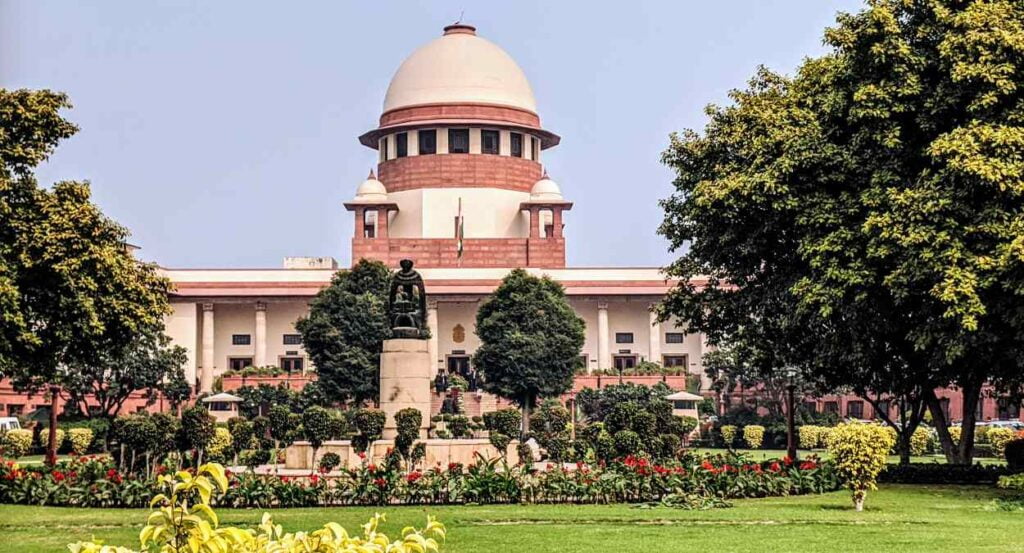Ramdev’s Patanjali Hits Roadblock as SC Slams Brakes on Misleading Ads
The Supreme Court has banned Baba Ramdev’s Patanjali Ayurved Ltd from advertising its products until further orders. This blanket ban comes after Patanjali was pulled up repeatedly for publishing false and misleading advertisements that made unfounded claims about its products curing diseases.
Background of the Case
In August 2022, the Indian Medical Association (IMA) filed a petition at the Supreme Court against an advertisement published by Patanjali titled “Misconceptions Spread by Allopathy”. The ad directly attacked modern medicine and claimed that allopathy is a “stupid and bankrupt science”.
The IMA accused Patanjali and its co-founder Baba Ramdev of spreading misinformation and contributing to vaccine hesitancy during the Covid-19 pandemic. It also claimed that Patanjali has been making false assertions that its products can cure certain diseases, which goes against the Drugs and Magic Remedies (Objectionable Advertisements) Act, 1954 (DOMA).
Patanjali Violated Undertaking Given to Supreme Court
On November 21, 2023, Patanjali’s counsel gave an undertaking to the Supreme Court that the company will not violate any laws related to advertising and “no casual statements claiming medicinal efficacy or against any system of medicine will be released to the media in any form”.

However, on February 27, 2024, the court found that Patanjali had continued to release advertisements claiming its products provide “permanent relief” from diseases and are superior to modern medicine.
An irate Justice Amanullah stated, “The entire country has been taken for a ride! For two years you wait when the Drugs Act says this is prohibited?”
The court deemed this unacceptable and banned any further advertisements, branding or adverse statements in the media regarding Patanjali’s medicinal products until the next hearing on March 19, 2024.
Why Misleading Ads Are Illegal
The IMA has stated that Patanjali’s actions are in violation of the DOMA and Consumer Protection Act, 2019 (CPA) which have strict laws against false advertisements.
The Drugs and Magic Remedies Act (DOMA)
- Section 4 prohibits advertisements that directly or indirectly give a false impression of a drug, make false claims, or are misleading.
- Penalty for first offence is imprisonment up to 6 months and/or fine. Second offence can lead to 1 year imprisonment.
Consumer Protection Act (CPA)
- Section 89 prohibits misleading ads prejudicial to consumer interests.
- Imprisonment can extend to 2 years with Rs 10 lakh fine for first offence. Subsequent offences can lead to 5 years imprisonment and Rs 50 lakh fine.
- Defines misleading ads as those giving false description of products/services, unfair trade practices, concealing important info, or likely to mislead consumers.

Timeline of Warnings Issued to Patanjali
The Supreme Court has repeatedly warned Patanjali against such practices:
- November 2023 – SC orally warned Patanjali not to claim products can “cure” diseases and threatened a Rs 1 crore cost for each product making such claims. Stated it didn’t want to enter “Allopathy vs Ayurveda” debate.
- November 21, 2023 – Patanjali’s counsel assured SC no laws will be violated in advertisements.
- January 15, 2024 – SC received letter about Patanjali still publishing misleading ads.
- February 27, 2024 – Court found Patanjali flouting undertaking. Banned all ads and branding of products.

Impact of Misleading Advertisements on Consumers
Experts say such misleading ads can harm consumers in the following ways:
- Creates confusion about the authenticity and accuracy of claims made
- Promotes sale of substandard products that don’t work as claimed
- Results in delays in proper treatment as people try unproven remedies
- Spawns distrust of legitimate medical systems like modern medicine and AYUSH
- Leads to violations of consumer rights of safety, information, choice and redressal
Increased Complaints to Regulators
According to reports, consumer complaints to regulators like the Advertising Standards Council of India (ASCI) regarding misleading advertisements by Patanjali have been on the rise:
- In 2015, out of 125 advertisements complained against, 15 belonged to Patanjali.
- In 2016, out of 171 misleading ads, 33 were attributed to Patanjali – making it the top violator that year.
- In 2017, Patanjali was again the top violator with 26 misleading ads out of a total 136.
This shows the widespread nature of the problem, which the blanket ban aims to address.
FAQs about Patanjali’s Legal Battle Over Misleading Advertisements
Q. What triggered the legal battle against Patanjali?
A. The IMA filed a petition over an ad that attacked modern medicine. It accused Patanjali of spreading misinformation during Covid-19 and making false claims about its products.
Q. What laws has Patanjali allegedly violated?
A. The Drugs and Magic Remedies Act, 1954 and Consumer Protection Act, 2019 – both prohibit misleading advertisements about medicines/health products.
Q. What assurances had Patanjali given to the Supreme Court?
A. In November 2023, Patanjali’s counsel assured the court no laws will be violated in ads and no misleading statements will be made against any medical system.
Q. How did Patanjali violate the undertaking?
A. In February 2024, the SC found Patanjali still publishing ads claiming its products provide “permanent relief” from diseases.
Q. What is the penalty for misleading ads under the DOMA?
A. Imprisonment up to 6 months and/or fine for first offence. Second offence can lead to 1 year imprisonment.
Q. What is the penalty under the Consumer Protection Act?
A. Imprisonment up to 2 years with Rs 10 lakh fine for first offence. Subsequent offences can lead to 5 years imprisonment and Rs 50 lakh fine.
Q. What action has the Supreme Court taken against Patanjali?
A. The court has banned Patanjali from advertising its medicinal products until the next hearing in March 2024.
Conclusion
The Supreme Court’s stern action against Patanjali’s misleading claims sends a strong message to all advertisers and medicine manufacturers. Consumers have a right to accurate information regarding health products and treatment options. Brands should back up claims with strong clinical data and avoid unrealistic curative assertions. The onus is also on regulatory bodies like the Advertising Standards Council of India and AYUSH Ministry to ensure stringent action against false advertising under the ambit of the law. This will help build trust in India’s healthcare ecosystem as well as safeguard consumer rights.
Disclaimer:
This article is based on various news reports and is for informational purposes only. It should not be considered legal advice. Please consult a legal professional for any queries regarding misleading advertisements and related laws. This is a fictional piece of content created for educational purposes at Wini Media.
Also Read:
What Does The Odometer Of An Automobile Measure? Your Car’s Odometer Reading Explained
Cervical Cancer in India: A Comprehensive Guide on Risk Factors, Symptoms, Prevention and Treatment
90-30-50 Diet Plan: A Balanced Nutrition Plan For Your Optimum Health
The Unexpected Fat Burning Power Of Ghee, How To Take Ghee For Weight Loss?
Discover India’s Top 25 Vipassana Meditation centre For Life Transformation






























